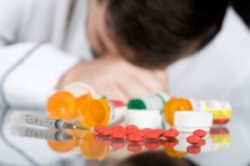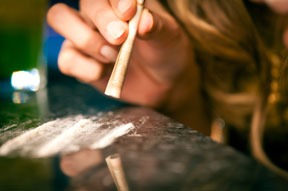Top 5 Signs You Need Stimulant Addiction Treatment
According to the Harvard Medical School, “[Illegal stimulants] are among the most commonly abused drugs in the world – and also some of the toughest for addicts to quit.” The abuse of prescription stimulants was studied in 2007 to find that “about 1 million Americans” reported taking these drugs for a nonmedical reason.
While some individuals abuse stimulants and never become addicted, those who do face serious consequences and should receive treatment as soon as possible. If you are attempting to determine whether or not your stimulant abuse has become an addiction, look for these top 5 signs which illustrate that you are in need of treatment as soon as possible.
1. Withdrawal
If you experience withdrawal symptoms when you are unable to abuse stimulants, this is a sign that you are dependent on these drugs. In cases of abuse, addiction and dependence often go together, and you will likely need treatment for both issues. According to the CHCE, “Stimulant withdrawal which occurs following cessation of chronic cocaine and amphetamine use, can produce a wide range of dysphoric symptoms,” including:
- Extreme cravings
- Anxiety
- Agitation
- Depression
- Fatigue
- A loss of physical as well as mental energy
- An inability to feel pleasure
- Decreased interest in one’s surroundings
- Irritability
- Insomnia or hypersomnia
- Suicidal thoughts
These symptoms are not only severe but dangerous. The presence of suicidal thoughts can put a withdrawing individual in grave danger, and the intensity of the cravings will likely cause that person to relapse and start abusing again. While you may feel that you have your use of stimulant drugs under control, if you are experiencing symptoms such as these, you should strongly consider treatment, as it will be extremely difficult for you to stay away from these drugs.
2. Tolerance and Binge Abuse
Stimulant drugs can cause tolerance quickly and intensely as well as desire to abuse more of the drug as a result. According to CESAR, “Abuse of amphetamines, which can lead to tolerance and physical and psychological dependence is characterized by consuming increasingly higher dosages, and by the ‘binge crash’ cycle, when users attempt to maintain their high by overindulging on these drugs.” This is true for all stimulants, from prescription drugs to illegal ones.

High tolerance and binging are clear signs of stimulant addiction.
If you
- Have realized that you cannot take the same amount that you once did and feel the same effects
- Constantly feel the need to take more of the drug in order to achieve those effects
- Continue to abuse the drug over and over in order to maintain your high
- Have considered taking or started taking stronger drugs to combat your tolerance for those you had been taking
you need stimulant addiction treatment. Without it, you will continue to take larger and larger doses of the drug and, more than likely, experience an overdose before long. Stimulant overdose itself can be deadly and is characterized by heart palpitations, increased blood pressure and body temperature, and the possibility of seizures, heart failure, and death.
3. Stimulant-induced Psychosis
There are a number of symptoms that point to a condition called stimulant-induced psychosis which is one of the top signs that you need stimulant addiction treatment immediately. Because this psychosis is caused by intense, long-term drug abuse, those who experience it are already addicted and unable to stop taking the drug on their own. The symptoms of this disorder include:
- Schizophrenia-like behavior
- Aggression
- Auditory/visual hallucinations
- Picking at the skin
- Paranoia
- Hostility
- Confusion
- Severe delusions
- Homicidal and suicidal tendencies
- “Stereotyped compulsive behavior” (CHCE)
Those who are affected by stimulant-induced psychosis are not themselves and are more than likely to hurt themselves or someone else. In this case, the individual should be brought into treatment immediately, usually to an inpatient facility or hospital, and medication will usually be given to combat the symptoms. In extreme cases, the patient may be restrained. The longer this kind of toxic psychosis goes unchecked, the worse it becomes.
4. Drug Abuse Affects Your Life
Once your drug abuse has begun to affect your daily life, you have an addiction. The worst part is addicts cannot stop taking stimulants at this point because they already have no control over their drug use. Some of these effects can be minor, major, or repetitive, but experiencing them and being unable to stop is one of the strongest signs that you need treatment.
Ways in which stimulant abuse can affect your life include:
- Trouble at work
- Loss of job, getting reprimanded, becoming injured as a result of working while high
- Trouble in school
- Having a “lower GPA” when you began abusing stimulants to achieve a higher one, getting expelled/suspended (NIDA)
- Trouble at home
- Breakups, family disputes, falling out with friends
- Trouble with the law
- Getting a DUI, getting arrested, facing jail time for selling/abusing stimulant drugs
If you experience any of these issues in your life (especially more than one in a given year) and you are still unable to stop, you must seek treatment.
5. Unhealthy Physical State
The long-term use of stimulants can cause many physical problems, and continuing to abuse the drug after these develop will only make them much worse. If you are suffering from any of the conditions listed below, consider treatment for your drug abuse immediately.
- Malnutrition, severe weight loss
- Skin disorders
- Ulcers
- Heart problems (cardiac arrhythmia, pounding heartbeat, heart attack)
- Overdose
- Breathing problems (especially those caused by snorting cocaine)
- High blood pressure
- Stroke
According to the NIDA, “Insoluble fillers in [prescription stimulant] tablets can block small blood vessels” if these drugs are crushed and snorted over a long period of time which is one of the most popular abuse methods for stimulant drugs. Any of the conditions above can become worse with further stimulant abuse and call for their own treatment as well as treatment for addiction.
If you are unable to stop abusing stimulants, despite these signs, you must seek treatment as it is the only way you will be able to stop. These drugs are incredibly potent and cause cravings that can sometimes last for months, even years, after your last instance of drug abuse. Look for these signs before you tell yourself that you may need stimulant addiction treatment.



